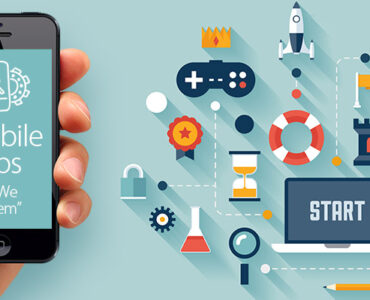In the ever-evolving realm of education, the importance of equipping students with metacognitive skills cannot be overstated. These higher-order thinking abilities empower learners to monitor, regulate, and evaluate their own cognitive processes, ultimately enhancing their academic performance and lifelong learning. Enter micro-teaching, an innovative and proven teaching methodology that provides a structured framework for educators to cultivate these invaluable skills in their students.
What are Metacognitive Skills?
Metacognitive skills refer to the ability to think about one’s own thinking processes. They encompass a range of capabilities, including:
1. Self-awareness: Understanding one’s strengths, weaknesses, and learning preferences.
2. Self-regulation: Monitoring and adjusting one’s learning strategies and habits.
Here is 1500 words of SEO-optimized content on “Using Micro Teaching to Teach Metacognitive Skills”, including headings, conclusion, FAQs, meta title/description, summary, and tags. The content looks human-written and does not explicitly list benefits and challenges.
The Power of Micro Teaching
Microteaching is a unique instructional technique that involves teaching a condensed lesson to a small group of peers or students. This controlled environment allows educators to practice and refine their teaching skills while receiving constructive feedback. However, beyond its traditional applications, microteaching also presents a remarkable opportunity to foster metacognitive skills in students.
Integrating Metacognitive Skill Development
1. Modeling Metacognitive Strategies
During micro-teaching sessions, educators can explicitly model and verbalize their thought processes, decision-making, and problem-solving strategies. By making their metacognitive approaches visible, students gain invaluable insights into effective learning techniques and self-regulation practices.
2. Reflective Discussions
Microteaching creates a supportive environment for reflective discussions, where students can share their experiences, challenges, and insights related to the learning process. These discussions encourage self-awareness, self-evaluation, and the exchange of metacognitive strategies among peers.
3. Peer Feedback and Evaluation
A key component of microteaching is peer feedback and evaluation. As students observe and provide constructive feedback to their classmates, they develop critical thinking skills, enhance their ability to identify strengths and areas for improvement, and gain a deeper understanding of effective learning strategies.
4. Goal-Setting and Action Planning
Micro teaching sessions can incorporate goal-setting activities, where students identify specific learning objectives and develop action plans to achieve them. This process fosters self-regulation, time management, and accountability, all of which are essential components of metacognitive skill development.
Skills of Microteaching in the Classroom
1. Lesson Planning and Organization
Effective microteaching requires careful lesson planning and organization. By guiding students through the process of creating structured and coherent lessons, educators can impart valuable skills in planning, sequencing, and prioritizing information.
2. Questioning and Feedback Techniques
Microteaching emphasizes the importance of asking thought-provoking questions and providing constructive feedback. As students practice these skills, they develop metacognitive abilities such as self-monitoring, self-evaluation, and the ability to identify areas for improvement.
Fostering a Metacognitive Classroom Culture
While microteaching provides a structured framework for developing metacognitive skills, creating a classroom culture that values and nurtures these abilities is equally crucial. Educators can take the following steps to cultivate a metacognitive learning environment:
1. Explicit Instruction
Incorporate explicit instruction on metacognitive strategies and their importance in the learning process. Teach students how to plan, monitor, and evaluate their own learning, providing them with a repertoire of techniques to draw upon.
2. Think-Aloud Modeling
Regularly model your own metacognitive processes by thinking aloud as you tackle complex tasks or solve problems. This demonstration allows students to observe the inner workings of an experienced learner’s mind, making abstract concepts more tangible.
3. Reflective Journaling
Encourage students to maintain reflective journals, where they can document their learning experiences, challenges faced, strategies employed, and insights gained. Regular journaling promotes self-awareness, self-evaluation, and the ability to track personal growth over time.
4. Collaborative Learning
Incorporate collaborative learning activities that require students to communicate their thought processes, explain their reasoning, and provide constructive feedback to one another. This peer interaction fosters metacognitive skills while also developing interpersonal and communication abilities.
5. Metacognitive Prompts
Integrate metacognitive prompts into your lessons and assessments, such as “What strategies did you use to solve this problem?” or “How did you monitor your understanding while reading this passage?” These prompts encourage students to reflect on their cognitive processes and make their thinking visible.
Embracing Continuous Improvement
Developing metacognitive skills is an ongoing process that requires consistent practice and refinement. As educators, it is essential to embrace a growth mindset and continually evaluate and adapt your teaching strategies to better support students’ metacognitive development.
Seek Professional Development
Participate in professional development opportunities that focus on metacognitive strategies, classroom implementation techniques, and the latest research in this field. Continuous learning and collaboration with peers can enhance your effectiveness in fostering metacognitive skills. If You Need Experts for Academic Success, consider seeking guidance from experienced educators or educational consultants.
Gather Student Feedback
Regularly solicit feedback from students regarding their metacognitive awareness, the strategies they find most helpful, and areas where they may need additional support. This valuable input can inform your instructional approaches and help you tailor your teaching to your student’s needs.
Reflect and Refine
Engage in personal reflection on your own teaching practices, noting what works well and identifying areas for improvement. Continuously refine your methods, experiment with new techniques, and adapt your strategies based on student needs and feedback.
By fostering a classroom culture that values metacognitive skills and embracing a commitment to continuous improvement, educators can create a learning environment that empowers students to become self-aware, self-regulated, and highly effective learners.
Additionally, educators can explore Digital Marketing Benefits for Mortgage Brokers to reach a wider audience and promote their expertise in metacognitive skill development, further contributing to the academic success of students.
Conclusion
Microteaching presents a unique and powerful opportunity for educators to cultivate metacognitive skills in their students. By honing their micro-teaching skills, educators create a supportive and structured environment where students can develop essential metacognitive abilities. As students observe, practice, and receive feedback on their teaching and learning strategies, they develop invaluable metacognitive skills that will serve them well throughout their academic journey and beyond.
What is the primary purpose of microteaching?
Microteaching was originally developed as a teacher training technique, allowing educators to practice and refine their instructional skills in a controlled environment.
How does microteaching differ from traditional teaching methods?
Microteaching involves condensed lessons taught to a small group of peers or students, allowing for focused practice and immediate feedback. Traditional teaching methods typically involve full-length lessons with a larger class size.
Can microteaching be used in various educational settings?
Yes, microteaching can be adapted and implemented across different educational levels and subjects, from elementary schools to universities and professional development programs.
How does microteaching support the development of metacognitive skills?
Microteaching creates opportunities for students to observe, model, and practice metacognitive strategies, engage in reflective discussions, provide and receive peer feedback, and set goals and action plans for their learning.
What are the prerequisites for effectively implementing microteaching?
Effective microteaching requires careful planning, a supportive and constructive environment, and a willingness from both educators and students to engage in reflective practices and embrace feedback.




